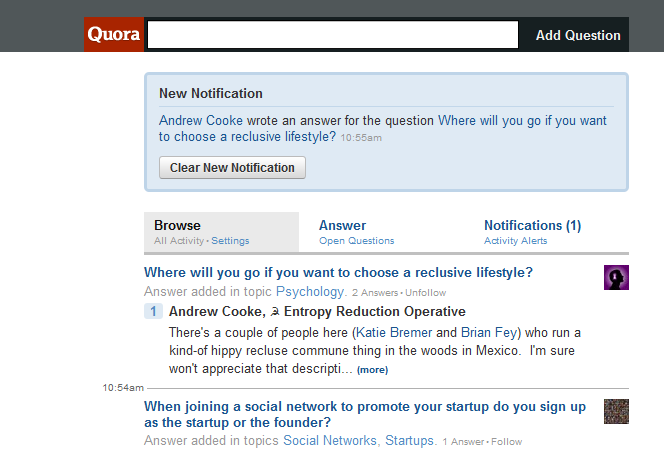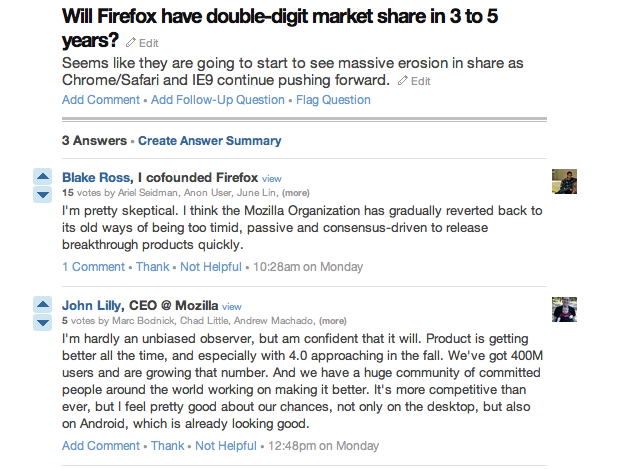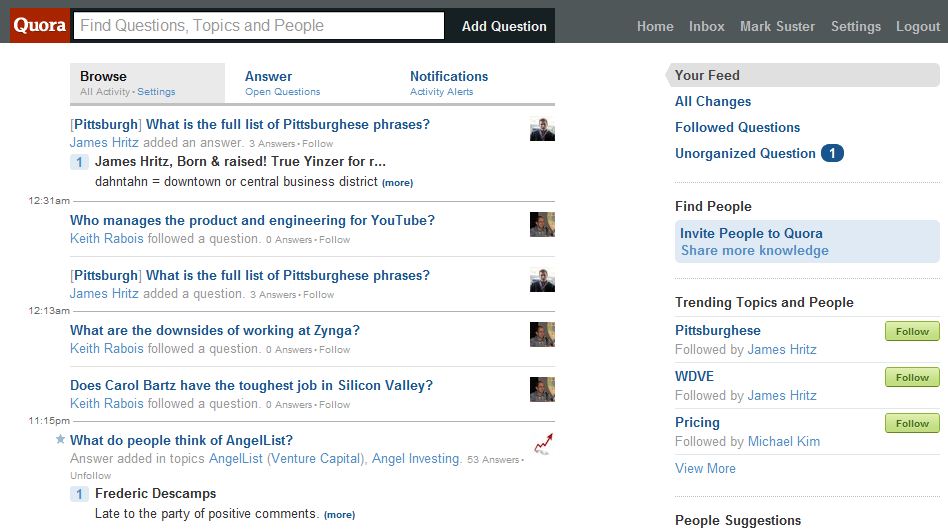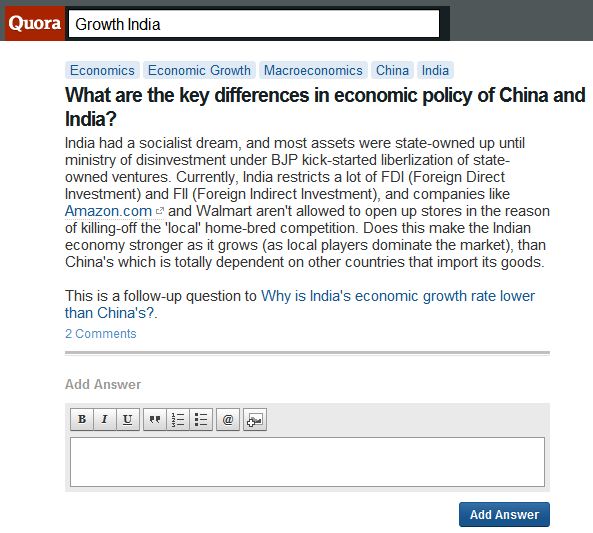Do you use Quora? Should you use Quora? In the last couple of weeks, Quora has become the trendy pick as a breakout site for 2011. Traffic increased tremendously in December but then more than doubled again in early January, as per information released on Quora couple of weeks ago.
What’s the noise all about?
Quora is an online knowledge market, founded in June 2009, launched in private beta in January 2010, and made available to the public on June 21, 2010. Quora aggregates questions and answers on many topics and allows users to collaborate on them.
Quora’s service allows users to ask questions and give answers. Additionally, users can comment on the questions and answers and “upvote” or “downvote” the answers. An “Answer Summary” can be created to reflect the consensus of the community. This summary is a wiki that can be edited by any registered user. Recently a blogging feature called Quora Posts has also been added.
Who is behind the noise?
Co-founded by Adam D’Angelo (Facebook’s former CTO) and Charlie Cheever, it received funding from Benchmark Capital in March 2010, valuing the start-up at a rumored $86 million. Matt Cohler, a former Facebook executive, has taken a board seat at the company.
Why so much of noise?
On December 26, 2010, Robert Scoble, a technology evangelist who earlier was at Microsoft and is known for his prominent blog Scobleizer, blogged ‘Is Quora the biggest blogging innovation in 10 years?’ This effectively endorsed the site as the next big thing. PC Magazine, Techcrunch, TNW and FastCompany were amongst the many media outlets that quickly followed. This, coupled with social graph on-boarding with Twitter, Facebook and email integration, lead to truly viral growth.
Pegged as a reverse blogging site rather than a simple Q&A site, Quora is trying hard to establish itself as an alternate to Yahoo Answers. According to the co-founders of the site, Quora is canvas waiting to be painted upon. “When you come to a question page on Quora and it’s blank there are a bunch of people waiting for the answer. An expert will look at it and say there’s an audience here and I know exactly what they want to hear. And I actually know about this stuff, or know enough to research and produce a really interesting piece of content, and it’s going to go to the perfectly targeted audience who opted in to hearing about this.”
What seems to be giving Quora the edge over other sites is the fact that each response has to be supplemented with the user’s real identity. This makes the answers that more authentic and believable. People say they feel smarter after they use Quora.
The magic of revealing the identity lies in something about the quality of the people and the content. Real discussions break out on Quora all the time. The signal to noise ratio is extremely high. Quora is a great place to find answers about products from prominent people involved with them. It’s also a great place for those prominent people to disagree, publicly. And this gives it a clear advantage of being live and buzzing.
How is the noise being created?
Quora is solving the problem that Google’s been trying to solve forever – creating the database of intentions. The most important thing about searching is to have a properly framed search string that will lead the searcher to the desired result.
In most of the cases, this perfect question has already been framed and been answered. All one needs to do is find it. And that is exactly what Quora is doing. This cuts out the link web that google provides for a query, or avoid the mindless answers people post on Yahoo answer. And unlike Linkedin, where you may get a great answer, you are not restricted to how many questions you can ask or look for.
Has Quora found a voice in India?
Not yet. Though according to Google AdPlanner, Quora has 30,000 unique monthly users in India — around 8% of total Quora users. Most people who use Quora in India are just beginning to get a feel of how this unique platform works. But make no mistake, going by the rate at which Scribd became the place to research for information in India, Quora will soon be amongst the most popular research site. Just for reference, while researching for this article we came across this question on Quora: “What are the key differences in economic policy of China and India?” which had two responses. Suffice to say, this is a great starting point for any researcher.
Quora could do to Google and Yahoo Answers what Facebook did to Orkut and MySpace, make Q&A sites more social and fun. Whether the noise and excitement survives post the initial euphoria will have to be seen. It’s early days but the concept could do well if the quality of the answers remains high and spam remains low.
To read more on Question and Answer site, check our previous post.







